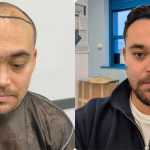Pharmacists hold one of the most heavily regulated professional licenses in the healthcare field. Every prescription filled, every patient interaction, and every record entered must meet state and federal standards. Even small oversights can escalate into disciplinary hearings, and the consequences—ranging from probation to complete license revocation—can threaten an entire career. Yet history shows that pharmacists are not powerless in the face of these challenges, says a Houston pharmacist license defense attorney. With careful preparation, expert support, and strong legal guidance, many have not only defended themselves but also restored their professional standing.
Navigating a Complex Regulatory System
Pharmacy boards have sweeping authority to enforce compliance in the interest of public safety. These agencies review everything from dispensing practices to continuing education, and sometimes their standards overlap or even conflict with each other. For pharmacists, this creates an environment where judgment calls may later be second-guessed. An accusation of misconduct can stem from something as simple as missing documentation, unclear policies, or reliance on flawed internal systems. Knowing how the process works—and where boards themselves must follow procedural rules—often becomes the foundation of a strong defense.
When the Process Itself Is the Problem
One case that stands out involved a pharmacist accused of repeated dispensing errors. Regulators treated clerical inconsistencies as evidence of misconduct and moved to suspend the license. On closer review, however, the defense discovered that the board had mishandled its own investigation by skipping required procedural steps. By highlighting those errors, the pharmacist’s legal team persuaded the board to reverse the suspension. The takeaway here is clear: defending a license isn’t only about the pharmacist’s actions; it can also be about ensuring regulators follow the law themselves.
The Power of Accurate Records
Another instructive case centered on allegations of mismanagement in a busy retail pharmacy. Regulators claimed numerous prescriptions were mishandled and pointed to gaps in the paperwork as proof. But once the defense analyzed the store’s electronic records and audit logs, the narrative shifted. Many supposed errors could not be verified, while others were traced back to system flaws outside the pharmacist’s control. The board ultimately reinstated the license, recognizing that the pharmacist had met professional expectations. This case highlights the importance of accurate documentation: when records are complete and verifiable, they can effectively refute claims of negligence.
Expert Testimony: Clarifying Complex Issues
Pharmacy is a highly technical field, and regulators may not always have the depth of knowledge needed to assess certain practices. In those situations, expert testimony can make a significant difference. Take compounding disputes, for example: pharmacists have defended their work by bringing in independent specialists who confirmed that their methods met recognized industry standards. These experts not only add credibility but also help simplify complex scientific issues, making them clear and convincing to the board.
Finding Solutions Through Cooperation
Not every license defense ends up in a courtroom. In some cases, negotiation can be the best path forward. One pharmacist, for instance, had fallen behind on continuing education requirements. Instead of losing their license, they resolved the matter by completing additional coursework and working under supervision for a specified period. By taking responsibility and showing a genuine effort to correct the problem, the pharmacist convinced the board to reinstate their license. This outcome illustrates how cooperation and a willingness to make changes can lead to a fair resolution.
Practical Lessons for Pharmacists
Several important lessons emerge from these real-world cases:
- Document everything. Accurate records are a pharmacist’s strongest shield.
- Know the rules. Understanding state and federal regulations helps anticipate how boards may interpret an issue.
- Use experts when necessary. Independent testimony can significantly impact the outcome of highly technical disputes.
- Consider remediation. Boards often respond positively to pharmacists who acknowledge shortcomings and take proactive steps to correct them.
Above all, pharmacists facing disciplinary action should not wait to seek legal help. An experienced defense attorney can evaluate the specifics, identify weaknesses in the board’s case, and craft a defense strategy that protects both license and livelihood.
More Than Just a License at Stake
A pharmacist’s reputation is just as important as the license itself. Sanctions can follow professionals long after a dispute is resolved, impacting job opportunities and eroding trust with patients and colleagues. That’s why these cases matter: they show that a pharmacist can recover, rebuild credibility, and continue a meaningful career. Success depends on preparation, persistence, and the right guidance.
Conclusion
The stories of pharmacists who fought and won against regulatory sanctions remind us that disciplinary actions are not always the final word. Whether by uncovering procedural errors, presenting compelling documentation, calling on experts, or negotiating practical solutions, pharmacists have secured second chances and continued their service to patients. For anyone facing similar challenges, the lesson is clear: don’t navigate the process alone. With the support of a skilled Houston pharmacist license defense attorney, it is possible to defend both career and reputation, and to move forward with renewed confidence.
Lynn Martelli is an editor at Readability. She received her MFA in Creative Writing from Antioch University and has worked as an editor for over 10 years. Lynn has edited a wide variety of books, including fiction, non-fiction, memoirs, and more. In her free time, Lynn enjoys reading, writing, and spending time with her family and friends.















